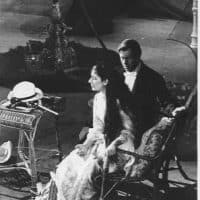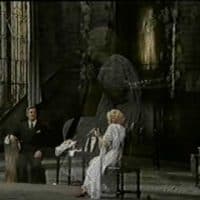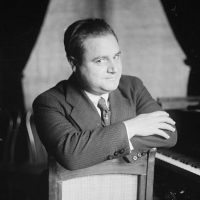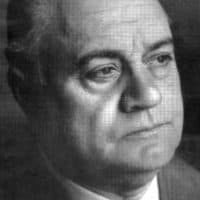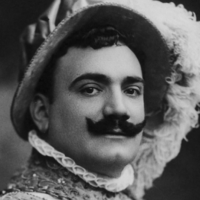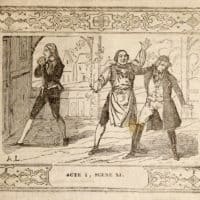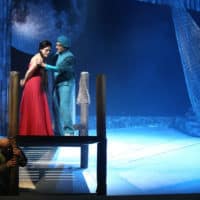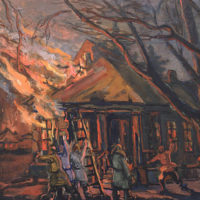 For over fourty years Hilde Konetzni was been artistically associated with the Vienna State Opera, where she had given her debut as Elisabeth in “Tannhäuser“ on April 5th 1935. From that evening on she not only became one of the most popular members of the ensemble, but also one of the irreplaceable ones. Born in Vienna on March 21st 1905 she had her first singing lessons at the new Vienna Conservatory with Wala Heß and Rudolf Nilius. As early as 1929, not having yet finished her vocal studies, she gave her first guest performance together with her sister, Anny, as Sieglinde in “Die Walküre“ at the Stadttheater in Chemnitz. Then, already, Konetzni´s remarkable acting abilities arose general attention. In 1930 she had an engagement in Gablonz, where her debut as Amelia in “Un Ballo in Maschera“ was a great success and where she appeared little later in what were to become two of her most celebrated roles: Leonore in “Fidelio“ and Marschallin in “Der Rosenkavalier“. In the fall of 1931 Hilde Konetzni sang for the first time at the Deutsches Theater in Prague in Verdi´s “Il Trovatore“ and remained there as one of its most popular singers until 1935. Among her most successful interpretations during her years in Prague were: the Elisabeths in “Tannhäuser“ and “Don Carlo“, Marie in “The Bartered Bride“ and Donna Elvira in “Don Giovanni“, but her most outstanding achievement was the role of Chrysothemis in “Elektra“.
For over fourty years Hilde Konetzni was been artistically associated with the Vienna State Opera, where she had given her debut as Elisabeth in “Tannhäuser“ on April 5th 1935. From that evening on she not only became one of the most popular members of the ensemble, but also one of the irreplaceable ones. Born in Vienna on March 21st 1905 she had her first singing lessons at the new Vienna Conservatory with Wala Heß and Rudolf Nilius. As early as 1929, not having yet finished her vocal studies, she gave her first guest performance together with her sister, Anny, as Sieglinde in “Die Walküre“ at the Stadttheater in Chemnitz. Then, already, Konetzni´s remarkable acting abilities arose general attention. In 1930 she had an engagement in Gablonz, where her debut as Amelia in “Un Ballo in Maschera“ was a great success and where she appeared little later in what were to become two of her most celebrated roles: Leonore in “Fidelio“ and Marschallin in “Der Rosenkavalier“. In the fall of 1931 Hilde Konetzni sang for the first time at the Deutsches Theater in Prague in Verdi´s “Il Trovatore“ and remained there as one of its most popular singers until 1935. Among her most successful interpretations during her years in Prague were: the Elisabeths in “Tannhäuser“ and “Don Carlo“, Marie in “The Bartered Bride“ and Donna Elvira in “Don Giovanni“, but her most outstanding achievement was the role of Chrysothemis in “Elektra“.
She also had great personal success in the local premieres of “Lady Macbeth von Mtsenk“ by Shostakovich and “Der Kreidekreis“ by Zemlinsky. In her own opinion, the soprano´s highpoint of her glorious career was her engagement at the Vienna State Opera. At the Salzburg Festival, where especially her Marschallin found unanimous acclaim, she was heard for the first time in 1936 as Donna Elvira and continued to appear there until 1961. Her international career started with a guest appearance in Paris on May 28th 1936 as Donna Elvira and was followed by her first appearance in London in 1938. Konetzni´s interpretations stood out especially due to the exceptional warmth of her singing and the youthful and dramatic impetus of her acting by which she won many a heart. In the years 1937 and 1938 she made an extensive tour through the United States and appeared in 82 concerts which were entirely dedicated to the music of Richard Wagner. 1938 was also the year when she appeared as Donna Elvira at the Festival in Glyndebourne. When the Vienna State Opera was rebuilt and reopened after the War, Hilde Konetzni was among the principal members of the ensemble.
Apart from her devotion to Vienna the singer dedicated a large part of her career to appearances abroad. She sang Sieglinde in London in 1946, Marschallin in Paris on May 30th 1949 and in the same year was heard as both Donna Anna on August 23rd and Färberin in “Die Frau ohne Schatten” on October 9th at the Teatro Colón. Another great international success were her performances at the Opera House in Rome, another milestone in her career was the “Ring”-cycle at the Scala in Milan conducted by Wilhelm Furtwängler in March 1950.
On April 28th 1951 she returned to the Scala as Jaroslawna in “Prince Igor”. Later on, when Konetzni started to teach singing, her students were able to benefit from her artistic experience based on a long and full career. Apart from private lessons she dedicated herself to teaching at the “opera studio” of the Vienna State Opera. On April 20th 1939 Konetzni had already been appointed German “Kammersängerin” and on April 26th 1946 was honoured with the title of Austrian “Kammersängerin”. On June 8th 1955 her numerous achievements for the Vienna State Opera were awarded with the “honorary membership”.
Hilde Konetzni died on April 20th 1980 in Vienna.
